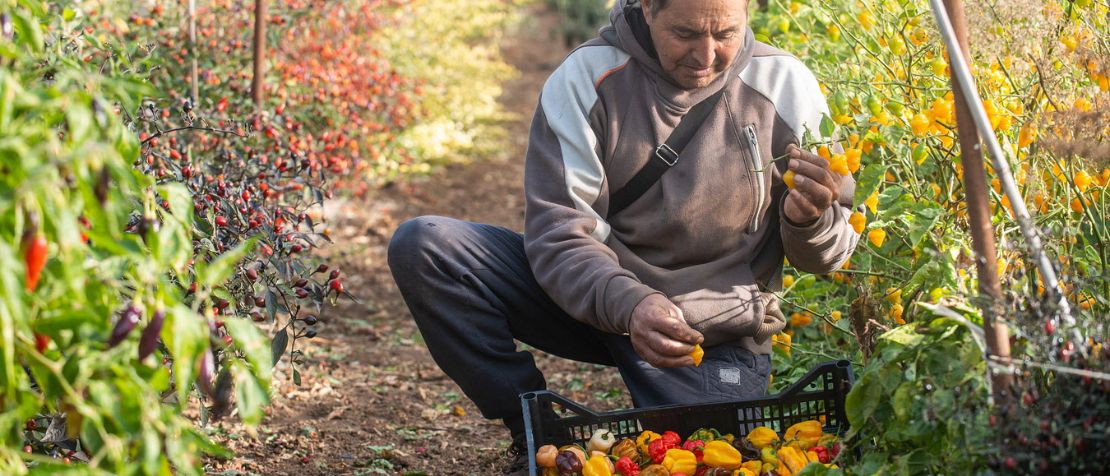Countries of Europe and Central Asia broaden their knowledge of plant protection

©FAO/Giorgio Cosulich
The survival of our species and of the planet itself depends on a healthy and biodiverse plant ecosystem. As part of its work to conserve biodiversity and encourage sustainable agriculture FAO is organizing a virtual event for countries of Europe and Central Asia today on current issues in plant protection. The webinar will address new phytosanitary treatments adopted and applied internationally, as well as the use of biological control agents for pest control.
Climate change and human activities are altering ecosystems and damaging biodiversity while creating new opportunities for pests to spread and thrive. The intensification of international travel and trade, which has tripled in volume in the last decade, is also favouring pests and diseases.
Plant pests and diseases know no borders, and neither does the FAO event. Renowned international experts will join virtually, including Mike Ormsby from New Zealand, who will give an update on phytosanitary treatments, and Rob Tanner from the Secretariat of the European and Mediterranean Plant Protection Organization, who will provide information on biological pest control.
“We need to protect plants both for people and the planet, and all of us have a role to play,” commented Piotr Wlodarczyk, FAO agricultural officer. “Every year, more than one third of food crops are lost due to plant pests and diseases. Information on phytosanitary treatments and biological control agents is presented and discussed today to help countries of Europe and Central Asia improve food security and agricultural efficiency, open export markets and protect smallholder farmers’ income.”
Phytosanitary treatments have long history of being successfully used for exported plants or plant products to make sure they do not spread dangerous pests to importing countries. As many countries in Europe and Central Asia are interested in opening new markets for their plant products, phytosanitary treatments may be needed and it is important that national experts have sufficient knowledge of their application. Mike Ormsby will provide information on international standards relating to the use of phytosanitary treatments for pest control in trade, procedures for submission of new standards for treatments for global adoption by the International Plant Protection Convention, and stand ready to answer a series of specific questions from the participants.
Biological pest control builds on a plant’s own potential to limit or reduce the population of an organism in a sustainable and cost-effective way. Rob Tanner will give an update on the application and regulation of external (exotic and non-indigenous) biological control agents. In his presentation, he will also elaborate on the work done on safe use of biological control agents by experts from the European and Mediterranean Plant Protection Organization (EPPO) member countries.
1 December 2022, Budapest, Hungary
